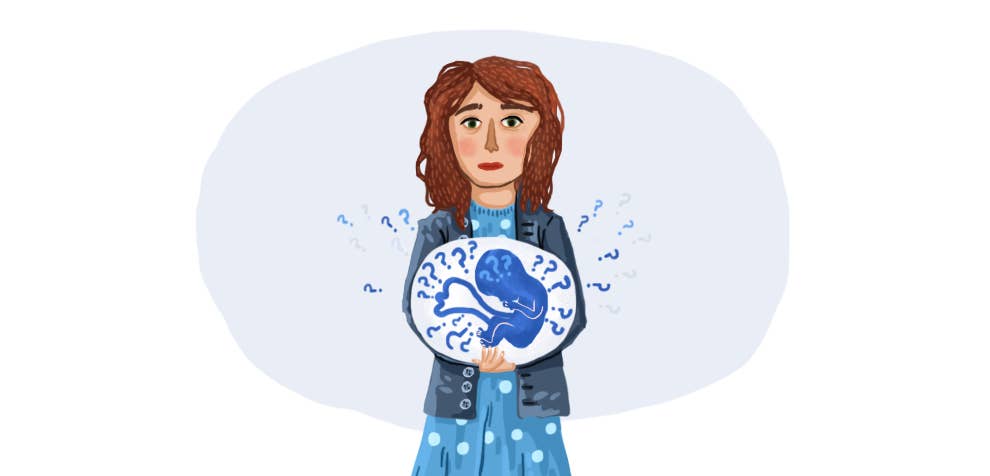
When I was 14, I passed out during my period for the first time. By the time I was 16, it was a monthly occurrence, as were vomiting, cold sweats, and brain-shattering pain. At 18, the pain had stopped being a 5-days-out-of-every-28 affair; I was in pain all the time, every day, and it was a question of management, not elimination.
We took a shot at every method of pain relief in the book.
I was fortunate enough to have a doctor who took me seriously. She put me on the pill when I was 15, which slightly lessened the pain but plunged me into a depression and caused me to put on masses of weight that only came off when I stopped taking it. Together we tried ibuprofen, codeine, yoga, massage, and acupuncture. We took a shot at every method of pain relief in the book, and then a few she found on the internet because, as she told me apologetically, “Our books are still a bit behind on this.” But nothing worked.
My digestive system started falling apart and my mental health followed suit. There’s only so much time you can spend in either agony or a drug haze before the world seems a little less bright. I could tell you when I was ovulating and from which side of my body because I could feel it happening (a party trick no one finds very impressive, as it turns out). My early sexual experiences were marred with pain and sensitivity that I couldn’t talk to my partners about because I blamed myself.
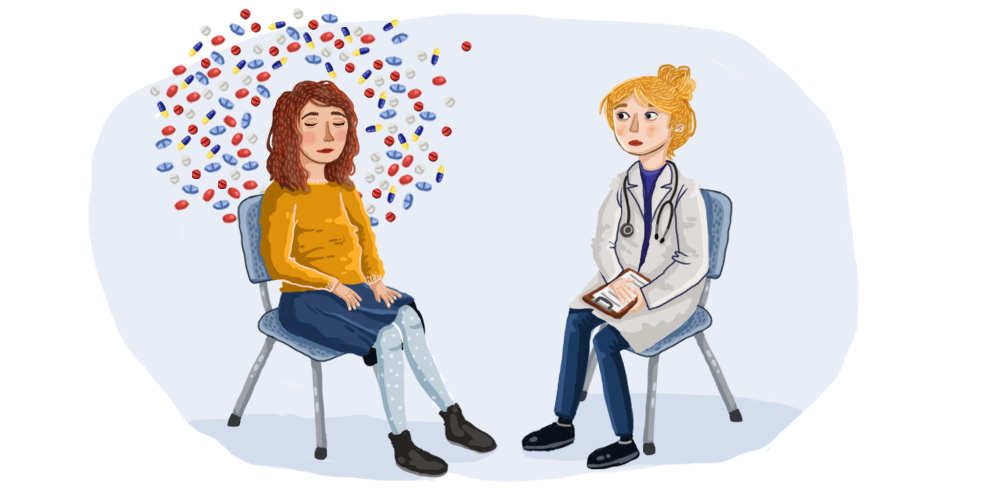
I had my first laparoscopy at 20. The surgery confirmed that I had severe endometriosis, a disease that causes your uterine lining to grow outside your uterus and attach to your other organs. If left unchecked, it could have rendered me entirely infertile. As it was, there was significant scarring on one of my ovaries and damage to the other.
I'd got myself a two-for-one.
While I was still reeling from these findings, my doctor told me it didn’t quite explain my random weight gain or the problems with my skin and mood, so she sent me to another specialist entirely, who confirmed that I’d got myself a two-for-one. In addition to the endo (I can call it that, we’ve known each other for years), I had polycystic ovary syndrome, or PCOS (these nicknames are so cute and useful, right?). If left unchecked, it could – yep, you guessed it – render me infertile.
So, I was 20. I was finishing my university degree and filled with ambition. I was in a relationship with a 21-year-old man. I had just been diagnosed with two diseases that would require close monitoring in order to maintain my fertility. I had three different doctors telling me that no matter what I did, there was a chance my ability to have babies would disappear entirely a lot earlier than expected.
I had some choices to make.
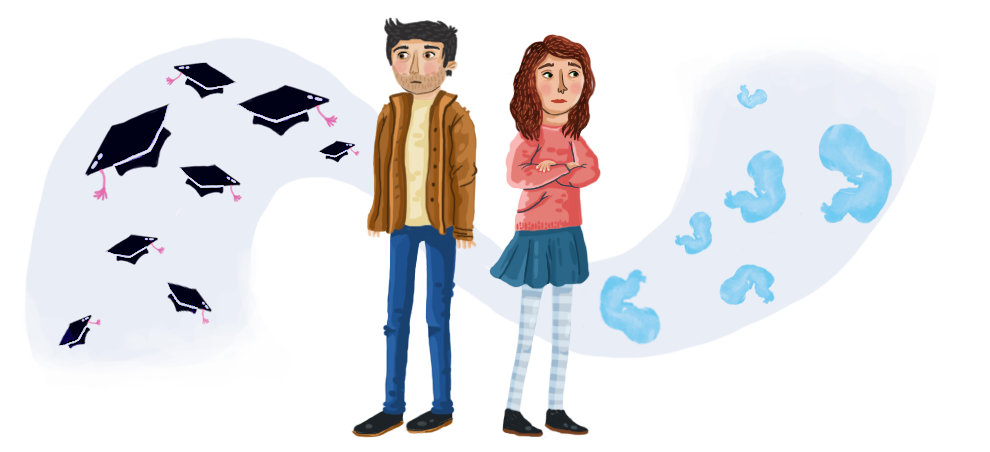
The year after you finish university is a time of experimentation. What’s it like having a job you actually care about? Or, wait, back up – how do you get a job you actually care about? And what about your university partner? Are they still the right person for you when you’re trying to make it in the big bad real world?
The man I was with as I finished my degree was, though lovely, definitely not the right person for me to share my life with. But he was the person who was with me when I had my fertility bombs dropped, which meant that if I was going to follow medical advice and get knocked up quickly, he was my best bet. I knew it, he knew it, my parents (who were in no way keen to see me married off at 20 to the first halfway decent person I dated) knew it.
A part of me wondered if we should try to make it work.
And so there was a part of me that wondered if we should try to make it work. After all, he was a good guy and we did love each other. Maybe having kids young was the way to go? I could get the breastfeeding and toddler stuff out of the way and then throw myself back into the workforce around 25 and really get shiz done. After all, 5-year-olds are basically self-sufficient, right?
That partner and I ended up splitting not long after my diagnosis. It would be unfair to pin the entire demise of the relationship on my troublesome uterus, but there’s no question that it was a contributing factor. Finding out your fertility has a limited clock on it forces you and your partner to look at each other and ask, "Is this really who I want to raise children with, and am I prepared to do that soon?" Our answer, ultimately, was no, and I believe it would have been no if we’d asked it in our thirties as well. We just got there sooner.
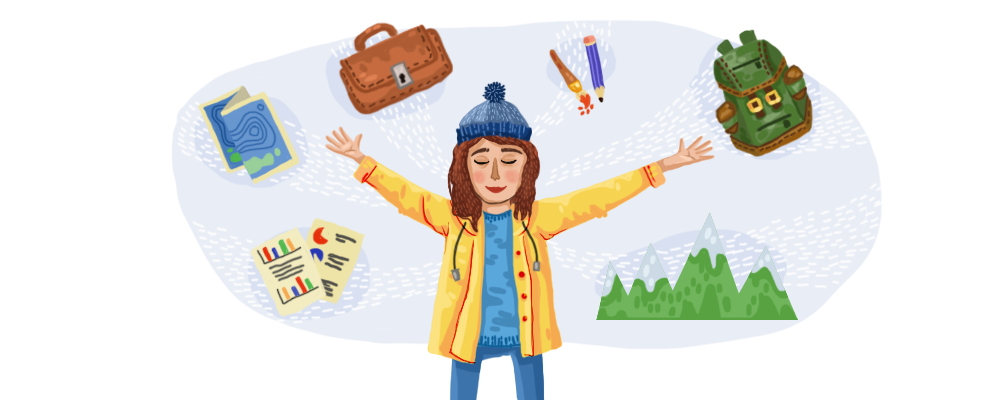
Eventually, my initial panic screaming “MAYBE I SHOULD HAVE BABIES RIGHT NOW” subsided and was replaced by an examination of my own desires that I had, shockingly, never bothered to undertake before.
Did I even want kids?
I grew up with happily married parents and two brothers I loved, so I’d always assumed I’d end up building a family pretty similar to my own. I taught dancing from the age of 16 and loved working with small children. Becoming a mother one day had seemed like an inevitability, albeit one that I would put off for many, many years if I could. My mum was 40 when she had me, so I didn’t need to rush.
I didn't need to rush... until I did.
Until…I did. And it dawned on me that there might be things I wanted more in life than to raise a child. I wanted to travel on my own and try out a bunch of different careers. I wanted to enjoy sex with relative strangers without wondering if every person I slept with was a potential co-parent. I also started seeing more women and it occurred to me that, though I’d always expected babies to one day happen, basically by default, that might not be the case if I ended up with a female partner.
I realised that I wasn’t willing to sacrifice my existing life and the possibility of adventure for the sake of an easier go of it fertility-wise. I stopped prioritising my biological clock and felt freer for the decision. That's not to say, however, that any other woman should make this same choice, just that it was the right one for me.
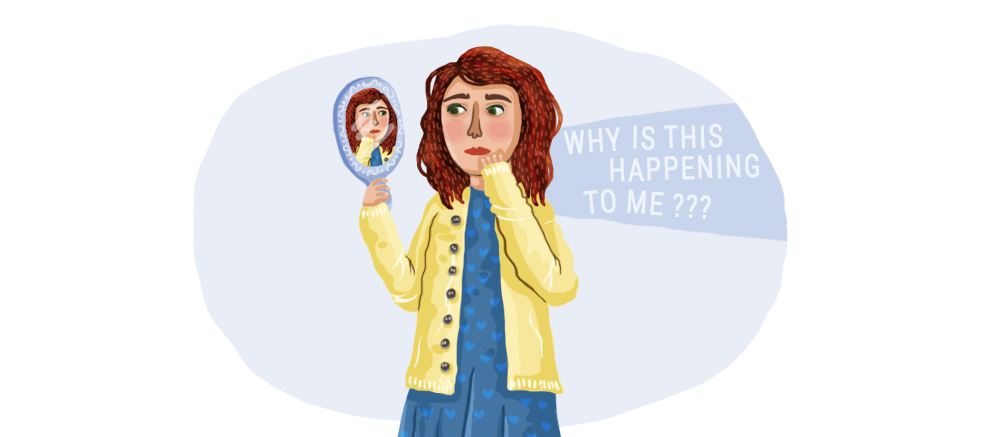
Here’s the problem with the “travel wherever and shag around” plan: Diseases that affect your fertility can put a real dampener on the old social life. Endometriosis, aside from the crippling pain, can lead to some messy, bloody sexual situations, so you’re going to want to be pretty confident of either your cycle or your partner before getting down. It can also lead to certain kinds of sex being uncomfortable or difficult, but – and I speak from experience here – a little experimentation either on your own or with a trusted partner is the best way around that.
“It’s like this disease doesn’t want me to have sex.”
And PCOS? Well, as a friend and fellow sufferer said to me a few years back, “It’s like this disease doesn’t want me to have sex.” The hormonal havoc it wreaks on your system can give you an entirely unpredictable libido. Also, the most common visible symptoms are weight gain, skin breakouts, excess body hair, and thinning head hair. Did somebody say “socially accepted forms of female beauty”? No? No one?
Despite this, my single years were incredible. Once I’d freed myself of the idea that I needed to get pregnant ASAP, I started to appreciate what my else my body could do. Yes, it gave me unbelievable bouts of pain and lethargy, but it was also a strong swimmer, an enthusiastic consumer of tequila and chilli, and a giver and receiver of sexual pleasure. Being forced to confront my physical limitations so early definitely led to an increased awareness of my physical gifts.
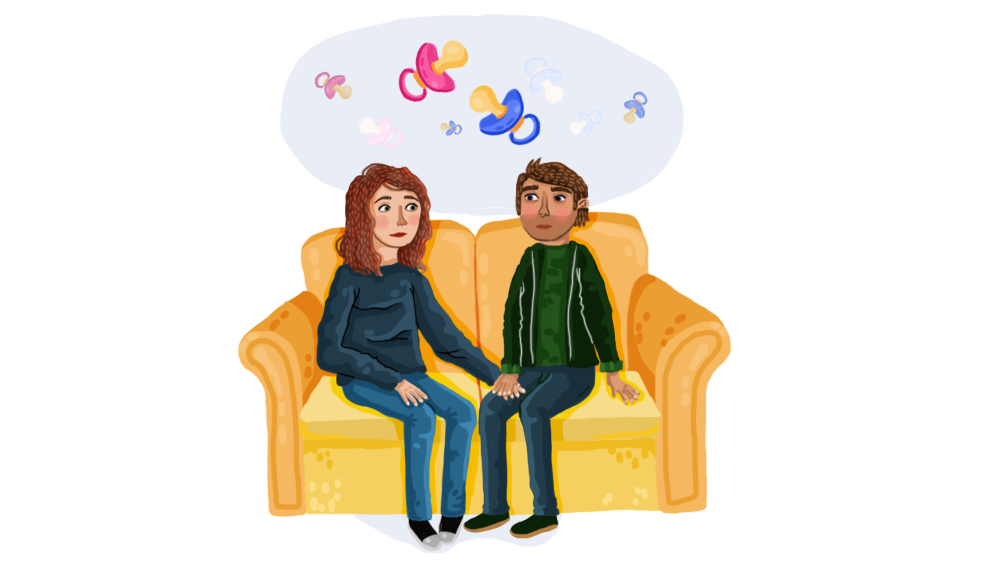
And then I fell in love. Completely by accident, at the very peak of enjoying my solo existence, five years after I’d become single and realised I liked it that way, I fell in love with one of my close friends and it felt instantly, irretrievably right. Having enthusiastically moved having a primary partner into the “not for me” category some time earlier, this was new and frightening territory.
Usually, two people in their twenties don't have to decide on forever things straight away.
Still, we were (relatively) young. And usually, two people falling in love in their mid to late twenties don’t have to decide on forever things straight away. But when, one month in, my partner casually said the phrase “Well, when I have kids –”, I realised we needed to talk. And it needed to be now.
So I sat him down and explained the whole damn mess that is my internal organs. He had known that I had difficult periods and had to monitor my diet because of insulin resistance (a symptom of PCOS), but I’d never gone into great detail before. But here we were, at the point in our relationship in which we should be having flirty tiffs over pancakes, talking about whether or not we’d be able to have children together. The unfortunate reality is that fertility problems don’t just change your outlook but that of anyone who wants to be with you long term.
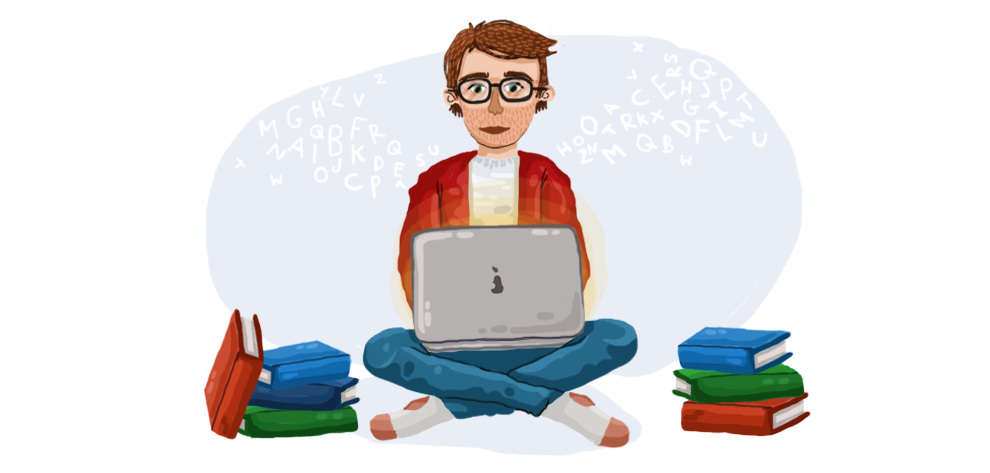
If my partner had been a different type of person, our relationship wouldn’t have worked out. There are many, many wonderful men and women I’d been with in the past who would have withdrawn pretty quickly after I launched the baby chat four weeks in. It’s not a knock on them. We’re young. We feel we should have more time than this.
My partner listened, and sympathised, and held my hand.
But my partner listened. He listened to all the details of what I’d been through and the reasons I’d made the decisions about my health that I had and he sympathised and held my hand. His first question wasn’t, “OK, how do we make sure your fertility fits in with my plans?” It was, “How can I help with the pain?”
He was kind and nurturing and he spent the next week reading everything he could about my illnesses so he could be the best possible partner to me.
Making decisions about your body earlier than your friends alters what you look for in a partner. It’s not just a stereotypical maturity thing – I’ve kidulted my way through my twenties, spending money on dresses I don’t need and staying out all night when I have to work the next day. But if you know you have physical problems that will probably never go away and that those problems will be making some of your life choices for you? You need a partner with empathy, who’s not afraid of living a couple of years ahead with you.
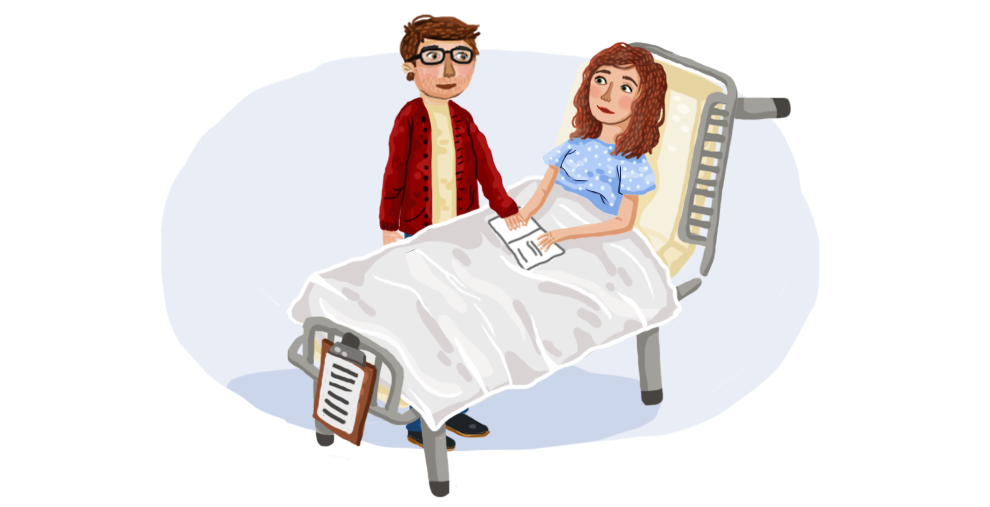
And once I found that kind of partner? Reader, I married him. To be clear, I am not implying that marriage is the answer to this or any other predicament (particularly when you’re in your twenties). But I decided I wanted to be with him for the rest of my life and we are from different countries, so rather than just deciding that, we needed to formalise it legally. (“Reader, we formalised it legally” somehow didn’t make it into the final edit of Jane Eyre.)
Reader, we formalised it legally.
We do plan to have children. My partner is built for parenting, and while I feel I would have been fine not having kids on my own or with a different partner, it is something I look forward to doing with him. For that reason, I had my second laparoscopy for endometriosis in December to try to preserve my fertility for as long as possible (and to ease my symptoms). My partner sat by my hospital bed for hours after I came out of surgery and patiently cared for me in the difficult month that followed.
And if, despite the two surgeries, restrictive diet, and years of pain management, we can’t conceive naturally? Well, that would suck, but I know I have a partner who is willing to work through hard things with me and isn’t afraid of difficult conversations. So while being forced to confront my fertility at a young age came with a lot of drawbacks, ultimately it helped me sort through what I wanted from my life at an accelerated pace. And I’m very happy with what I figured out.
BuzzFeed articles are for general information only. Please consult with a doctor if you are facing any health concerns.
